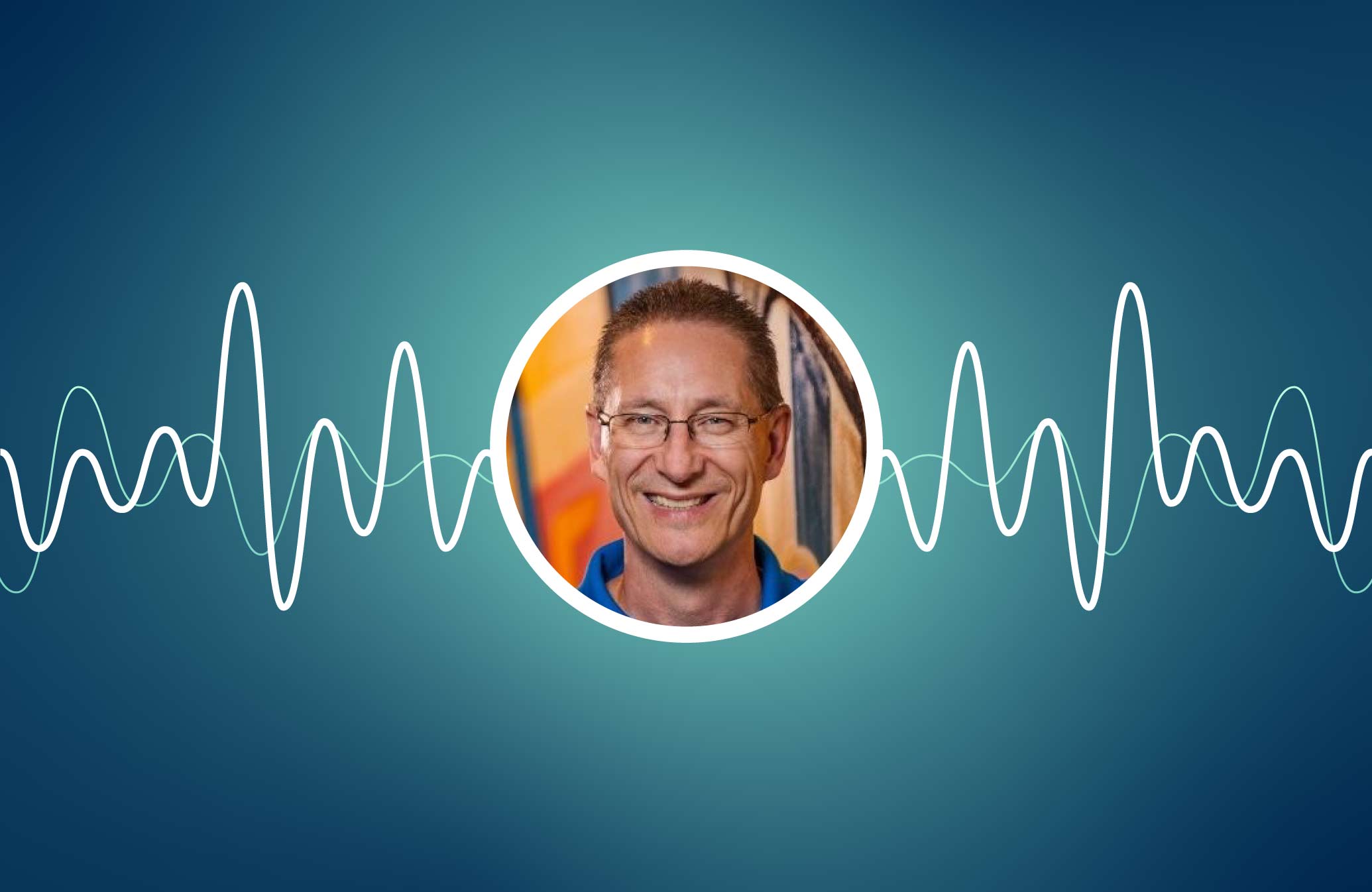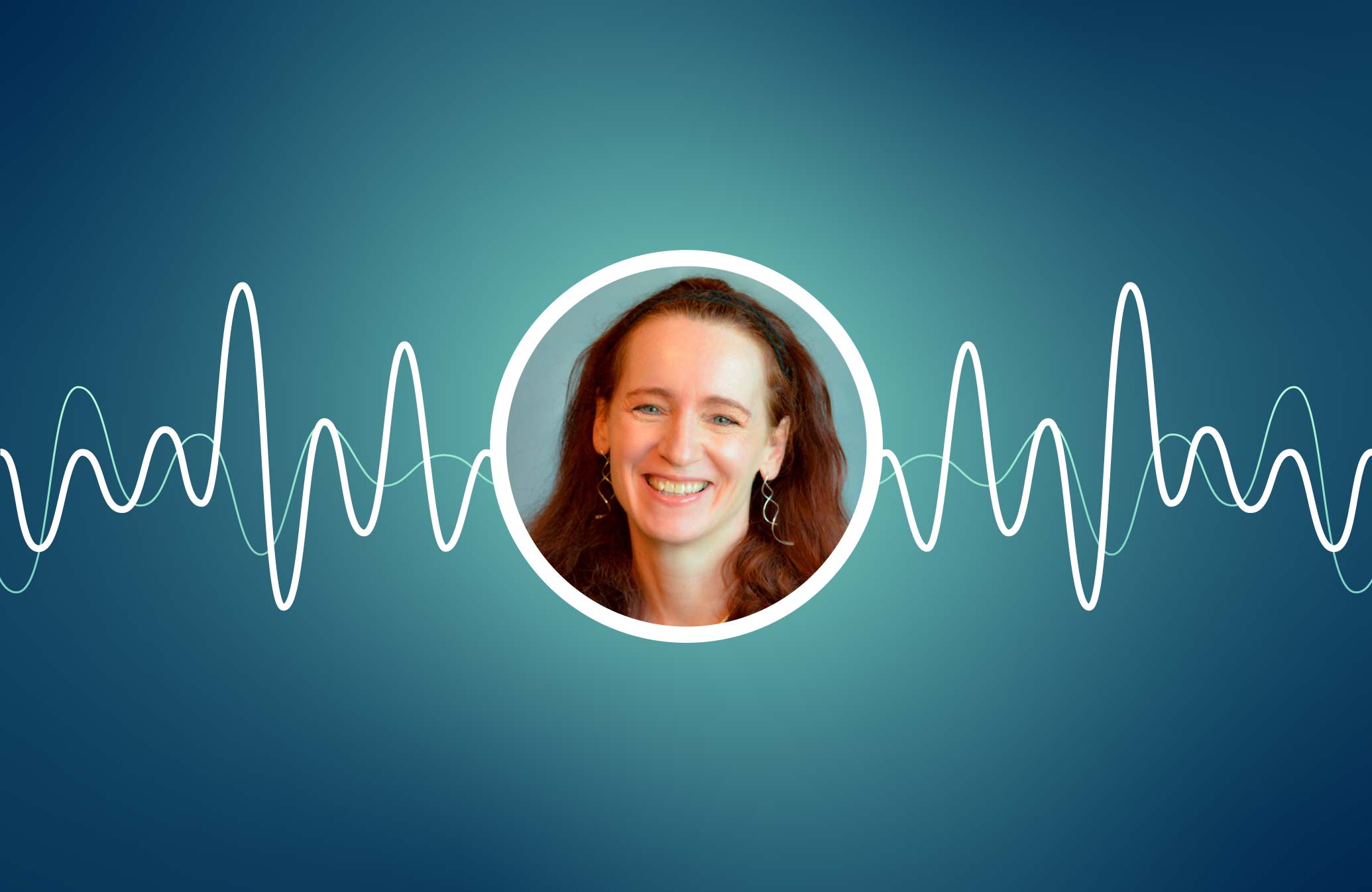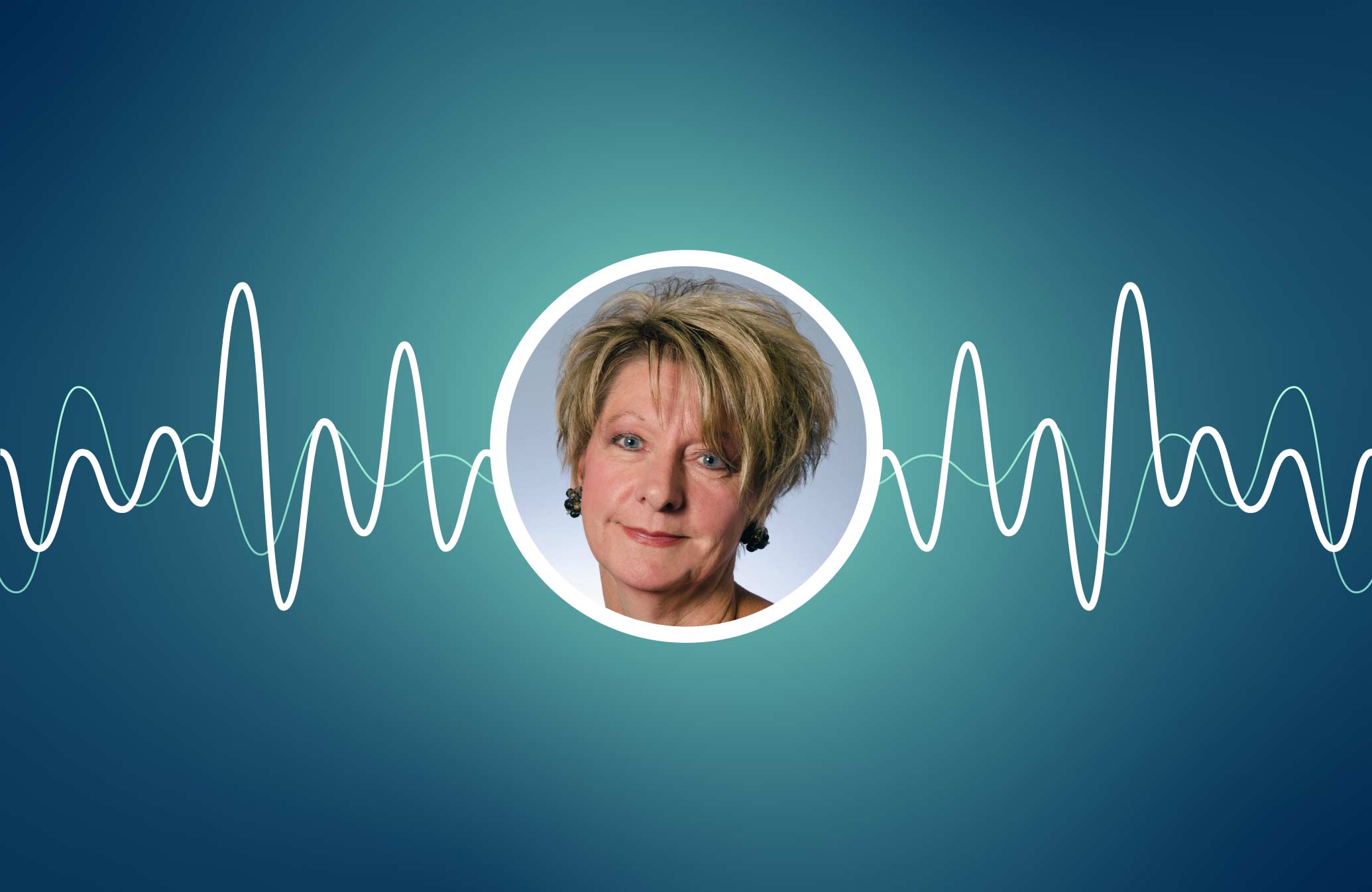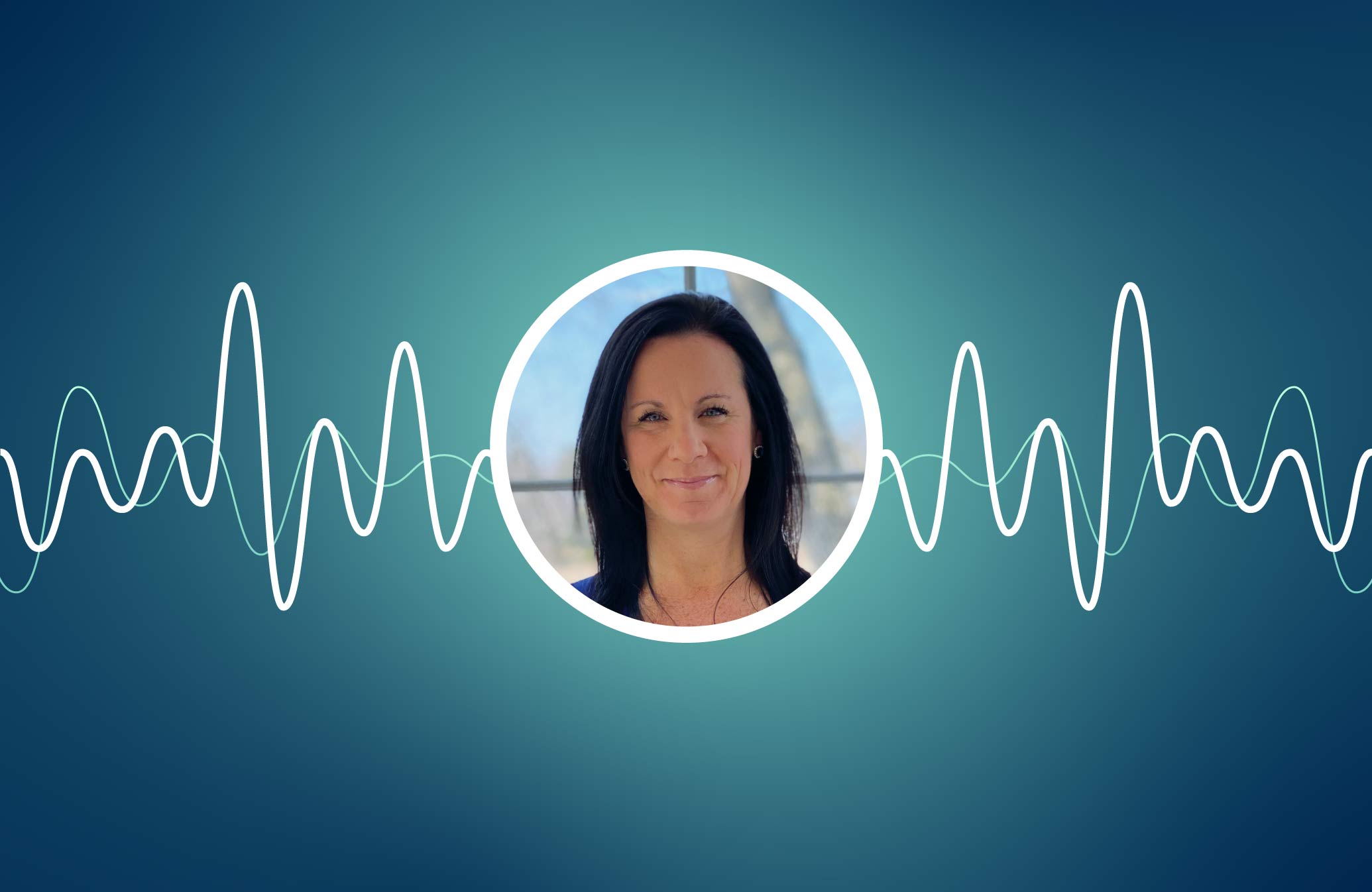Listen Now
Episode Transcript
Announcer [00:00:00] Welcome to RadioRev, podcasting from the heart of healthcare in Minneapolis, Minnesota. This is the podcast for change makers looking to do more than just health engagement. It’s about getting people to take action and do things that actually improve their health. It’s a radical idea, right? So we’re talking with the leaders, innovators, movers, and shakers who are bringing new ideas, inspiring others, and leading the way.
Jenn [00:00:26] Today on the show, we have Kyle Gunderson, President and CTO here at Icario, and Shawn Morrison, Founder and Executive Director at Good in the ‘Hood, a Twin Cities organization we’re partnering with this year through their Holiday Help Campaign. Welcome to the show.
Kyle [00:00:40] Hey, thanks for being with us today, Shawn. We’re really excited to have you in here on our Thanksgiving celebration here at Icario, and appreciate you coming and making some time for us.
Shawn [00:00:51] Thank you, Kyle. It’s great to be here.
Kyle [00:00:53] So we start every one of these conversations with the same question. So I hope we don’t catch you off guard with this, but we’re always curious to know what somebody’s favorite ’80s song is.
Shawn [00:01:04] That’s a hard and difficult question, but I love ballads. And so probably Dan Fogelberg. I love some of his stuff. I play a little guitar. I’m not a very talented one. But he did a song called “Leader of the Band.” I really enjoyed that one. {music plays}
Kyle [00:01:34] Excellent. That’s always a fun question. It’s nice to hear people’s background, why they select their songs. At Icario we always start by introducing our company with our mission. And we think that goes through everything that we do. So I’m really curious about the mission of Good in the ‘Hood.
Shawn [00:01:52] Our mission statement is to influence, to inspire, to impact individuals, families, entire communities, for good. And good’s a play on words, because we want to do good things, and we also want perpetuity. So there’s a little play on words there, but we’re really trying to inspire intentional kindness, and to do it with focused acts of kindness. And ultimately, we’d love to create a contagious momentum of kindness in others and in the community.
Kyle [00:02:20] That’s awesome. So maybe tell us a little bit more about Good in the ‘Hood, and how it got started. Where’d the idea start? How did you get it off the ground?
Shawn [00:02:30] Well, it kind of started as a strategy. I was working at a local college that was training overseas workers, missionaries, and those who would be relief workers. And my job was to provide outreach for them in a cross-cultural context. So I considered this and went and realized our urban community is very cross-cultural. And so we began doing things like adopt a block where we would take teams and form student teams to adopt a block for a year. All of that fast forward, that was about 1999. And then in 2003, some things changed at the college. They moved a lot more programing overseas. And I had this strategy, and I decided to implement it and to do some things that were really kindness-based. Everybody can be kind. Everybody knows how to do that, or they can learn it. It doesn’t take skills. It takes willingness, takes heart, takes compassion, hopefully supplemented with wisdom. But we all did—in 2003, we decided to turn into a nonprofit charity, and we had a number of objectives, one of which was to provide resources for those in need. We wanted to do ‘with’ the community, not just ‘for’ the community. We felt like we wanted to create this cooperative experience and then do things in partnership with other organizations that had likeminded and like heartedness. So 2003 really is the genesis for us, and it’s grown since then. And we’ve just been really excited to see some of the things that we’ve been able to do since that time frame.
Kyle [00:04:05] That’s awesome. Fifteen years and going strong. Congratulations.
Shawn [00:04:08] Thank you.
Kyle [00:04:11] One of the things I love about the way you talk about your organization is the use of the word ‘kindness.’ Maybe you can tell us a little bit more about what you mean by kindness-based initiatives, or why is that word so important to you?
Shawn [00:04:27] I actually was going to name it ‘Good in the Neighborhood,’ but Mr. Rogers had that. And by the way, his film is out now, so good timing. But the word ‘hood’ can be a stigmatized word because it can be ghetto. We actually very intentionally use ‘hood’ as a neighborhood. So you’ll note it’s apostrophe h-o-o-d, which is very intentional. We wanted to put the community back in the neighborhood, and we really felt that was important. And kindness builds trust. We were thinking actually our mission statement was going to be an acronym of the word ‘kind,’ which is kindness inspiring neighborhood decency. But we didn’t make that our mission statement. But that really also is a kind of a framework of thought for us: How do we use kindness to inspire neighborhood decency? Kindness is something that is generous of heart, something that builds bridges with others. It’s not just mere niceness, but when we think of kindness, we think of intentional, not just random, because we want things that build upon themselves and things that actually create perpetuity. And so when we say “kindness-based initiatives,” we’re saying, “Lean your best energy or your initiative towards that which will have the longest-term good and that which we’ll not just do for a community, but ultimately do with a community.”
Kyle [00:05:46] Right there, that word ‘community’ is another thing that I had in my mind when you talk about neighborhoods and the ‘hood. There is this sense of community. So why is that so important in your mission?
Shawn [00:06:03] Well, the word ‘community’ means common unity. And when we think of—I’m kind of a word guy, so forgive me, I’m a slogan person—but everything has a little bit of meaning to me. And not everybody always intuitively understands that. But for me, these words are keys. And I just appreciate you picked up on that, because if we don’t do it with the community, if we don’t have this common unity, we actually are doing things around people. And then it’s just transactional in nature. And we don’t want things to merely be transactional. We want to see people’s lives ultimately flourish. We want to see them move forward. I like to use the word ‘significance’ or ‘a sense of purpose,’ because when we use kindness, and we do it with the community, we give the community purpose if they don’t already have that or we partner with them in the purpose they have. And that ultimately really affects in a positive way families and individuals all the way down to the youngest of the young, the children.
Kyle [00:07:05] So we talked a lot about the community and the kindness-based initiatives. Turn it around a little bit, I wonder if you could speak to some of the individuals or the individuals that you helped with your programs? And why is it so important at that personal level for them to engage?
Shawn [00:07:28] It’s been a growing understanding for me. I think when we first started out, we probably walked into it really naive and somewhat wide-eyed, and we just wanted to do good. Over time I’ve realized compassion is very important, but it must follow wisdom. If we lead with compassion, what ends up happening is we end up doing for a community for a while, but we can’t sustain it. So we want to lead with wisdom whenever possible and support it with compassion. And what that does then is ultimately it requires us to engage the individual. We can’t just do around them again. As I said earlier, we need to do ‘through’ them and ‘with’ them. And what that does is it gives them a sense of purpose, gives them dignity. It gives them energy to make a change. They have a sense of ownership. So we’re pretty pleased to be able to say about 50% of our volunteer force is actually recipients of our services. And so that’s pretty exciting. And what we’ve found is those that are recipients of services—we invite them, we don’t require them—but we invite them to become volunteers. And there they learn about task. They learn about how to show up on time, how to do things that maybe are just basic willingness issues. But then we ask some of them to become leaders. And there they learn about responsibility, which is actually the linchpin, in my opinion, to change, to permanent change. Once they learn to bear the weight of their own decisions, and they realize there’s accountability, they become a different person not only through Good in the ‘Hood, but in their own family, in their own community. And they become an investor. We say we’re not just then giving away or throwing away our time or our resources. We’re investing into someone. And we’re seeing a return on that investment. And so that’s pretty exciting for us.
Kyle [00:09:10] That’s very exciting to see that growth in the people, and I think it’s really exciting to hear how they come through the program and are converted into volunteers themselves. That’s awesome. We talked a little bit about this is 15 years and going strong, and I can imagine that that takes—you mentioned it takes community, it takes volunteers—and I wonder if you could talk a little bit about the other kind of partnerships that Good in the ‘Hood has and the value to your organization.
Shawn [00:09:43] Well, in partnership with us, there’s many ways that someone can collaborate with us, and we try to find what’s that common purpose. And for Good in the ‘Hood we not only have a vision statement, we’re trying to create a vision culture. And in some ways, I don’t want to overstate this, but a vision movement where people are saying, “We want to get on board with this. We want to make a difference. We want to be the good in our own “hood.'” And people can get involved as partners in a couple different ways. But we always like to say there’s three types of volunteerism, which is a form of partnership. There’s flash volunteers. Those will be somebody that would maybe get involved with a one-time event that’s a larger event. Then there’s the regular program people, those people that help us to do a program on an ongoing level where they become a leader within it, maybe a trainer, somebody that shows up regularly. And then there’s a third level. There’s the organizational development partners. And those are people that help us to consider how do we expand some of our programs and our services. We have one right now, Shoe Away Hunger. It’s a shoe program, and we see that as a national opportunity. And so we’re forming advisory teams around that to make sure that we can really grow that and bring shoes and hunger relief to cities all over the nation.
Kyle [00:11:02] So talking about that, talking about community, and volunteers, and partnerships, what can you tell to the folks that are going to listen to this how to get involved and volunteer in your organization?
Shawn [00:11:14] Well, just like you’re doing here at Icario, it’s to be able to partner with maybe in a given initiative, one, whether it be the holidays or our food programs or shoe programs. It starts with a gateway such as that, where they go online at our website goodinthehood.org. And they just fill out a volunteer application, a fillable one, and they maybe volunteer for one event, that flash volunteerism. That helps introduce them to our community. We think that’s more important than even donating funds up front, because a lot of people donate to different nonprofits, which is really good, but they don’t have emotional connection with what that vision or that mission or that culture is. So we love it when groups or individuals come and get on board as volunteers or they adopt us during something like the holiday program. Once they get that, then they get a sense of us. There’s trust. They get a sense of our culture. Then they can become—they can host a shoe drive. They could volunteer at a regular program level. They could become part of that organizational development. They can be a financial partner as well. So there’s several other ways they can do that. But it starts with that gateway that’s effectively just volunteering at a one-time level that really makes a difference.
Kyle [00:12:33] Something that I have in my mind as we’ve had this conversation, I think I came into the conversation thinking about Good in the ‘Hood, the real beneficiaries of that are the individuals that you help and the individuals that participate in the program. But as we’ve had this conversation, I’ve started to get this sense that the benefit goes beyond that. It goes back to the community, and it goes back to the volunteers, and it goes back to partnerships. And I even think about what Icario gets out of participating in this. And so just tell me a little bit about how that is circular. It almost feels circular to me because it goes beyond just the recipients of your help. How does it really build that community?
Shawn [00:13:19] You have hit the nail on the head, actually, of what we’re trying to do. We wanted it to be good in a 360-degree level, three-dimensional, or whatever you want to call it, where it’s good everywhere. Of course, the occasion is somebody has a need. But those people that have need also have assets. And sometimes we fail to recognize that. And so we almost approach it like we’re on the top of the hill, and they’re on the bottom. Mother Teresa set a good pattern for us of being at the feet of those that she served because she understood that being powerless also was a very powerful position because it empowered somebody else. And so we really embrace that. And so I would say our goal is it would be a benefit to everyone. That it’s not a one-way street or one-sided; that everybody becomes a better person, which becomes a better…hopefully their family, but ultimately their community. And we really think kindness is a key that builds trust. It builds goodwill. It has positive energy. It really is something that makes a difference. And very few people don’t like kindness. And so it sounds a little Pollyanna-like, but it’s really in the best way because it takes our best energy, leans it into something that has a real meaning and real significance.
Kyle [00:14:35] That’s awesome. I feel like I have fired questions at you here for five or ten minutes. And I just want to give you a chance to talk about Good in the ‘Hood in the way that you do with the friends and family of the people that you meet on the street. So not necessarily a question here, just giving you the chance to tell us a little bit more in your own words.
Shawn [00:14:58] Thank you. I often get asked about our logo. So maybe use that as an illustration, because I think it embraces the heart of Good in the ‘Hood. Our logo’s a flower logo, and people kind of wonder why a flower? Are you a flower shop, or how’d that come out? And I had this picture in my head of a flower in an urban community that grows up in a crack in the sidewalk. It’s beauty in unexpected places. And likewise, we read so much in the news today about violence and crime and hatred. But when you have intentional kindness in a community that is filled with, sadly, those kinds of things, that kindness is beauty in unexpected places. And so we want to saturate the community with that kind of a flavor, that flower where sometimes you see it pop up in a crack in the sidewalk, unexpected beauty. But also, even the fragrance permeates. And so our goal is to be subtle, to be simple, to be intentional, and to be collaborative. And that’s Good in the ‘Hood. And so we can’t do it alone. We don’t want to do it alone. And so thank you to Icario, who is partnering with us, particularly for the holidays this year. It really makes a huge difference. And there’s so many families that are beneficiaries, but hopefully each and every one of us are, too.
Kyle [00:16:19] Well, thank you, Shawn, for coming in and spending some time with us today. And thank you very much for all the work that you and Good in the ‘Hood do in our communities. It’s fantastic.
Shawn [00:16:30] Thank you so much. Good to be here.
Announcer [00:16:32] Thanks for joining us for the RadioRev podcast, brought to you by Icario. If you found today’s conversation as informative and energizing as we did, please take a moment and subscribe to the podcast. As always, we invite you to learn more about us and check out all of our content at dev-revel-health.pantheonsite.io/RadioRev.
Inside the Episode
Kyle Gunderson talks with Shawn Morrison, Founder and Executive Director at Good in the ‘Hood, a Twin Cities organization Revel is partnering with this year through their Holiday Help Campaign. In this episode, they discuss the amazing work Good in ‘Hood is doing in the community, as well as:
- The mission of Good in the ‘Hood and “kindness-based initiatives”
- The importance of community and building bridges with those around you
- More about programs and how to get involved
To keep the conversation with Shawn going, connect with him on LinkedIn.
“Kindness is something that is generous of heart. It builds bridges with others. It’s not just mere niceness, when we think of kindness we think of being intentional because we want things that build upon themselves and things that actually create perpetuity.”
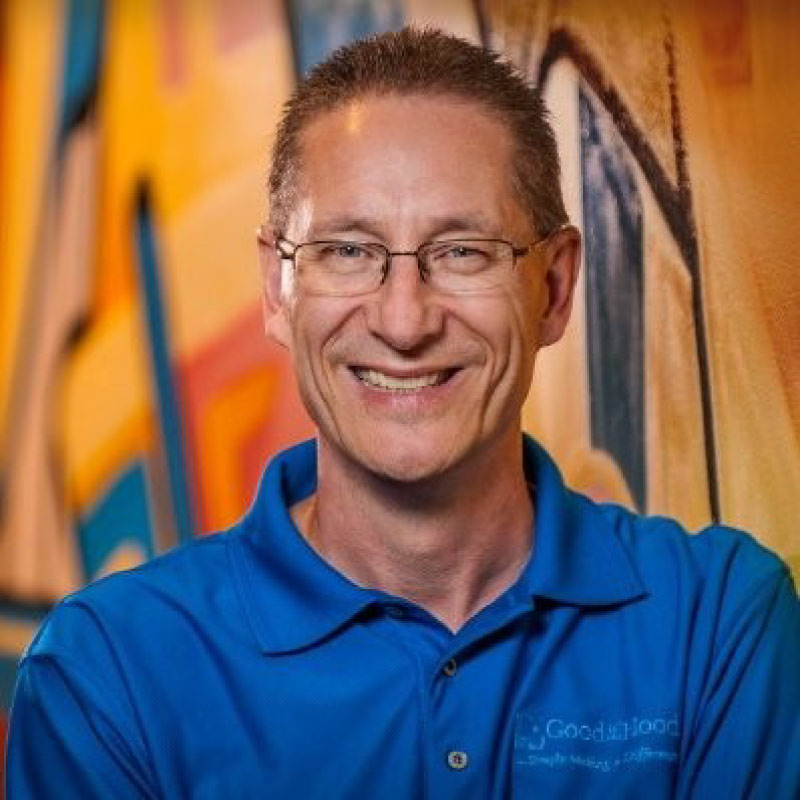
Shawn Morrison
Founder and Executive Director at Good in the ‘Hood
Can’t get enough of RadioRev?
Check out all of our episodes to stay up-to-date on the latest in healthcare innovation, social determinants, and health action.

